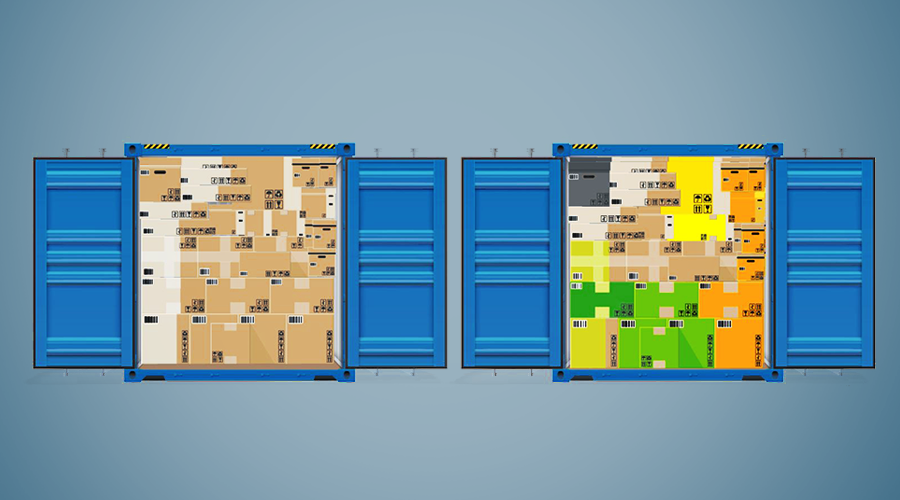Full Container Load vs Less Than Container
In the vast world of international shipping, two terms frequently arise: FCL (Full Container Load) and LCL (Less than Container Load). These terms are pivotal for businesses engaged in global trade, influencing logistics decisions and impacting the cost and efficiency of transporting goods across oceans. In this SEO article, we'll delve into the distinctions between FCL and LCL, shedding light on their characteristics, advantages, and consideration.
Understanding Full Container Load:
Full Container Load refers to a shipping arrangement where a single consignee utilizes the entire capacity of a shipping container. Whether it's a 20-foot or 40-foot container, the entire space is dedicated to the goods of one shipper. the diverse types of FCL containers offer a tailored approach to shipping, allowing businesses to adapt to the unique requirements of their cargo. Understanding the characteristics and applications of each container type empowers companies to optimize their shipping strategy, ensuring secure and cost-effective transport of goods across the oceans.
Advantages of FCL:
Efficiency and Speed: FCL shipments generally move faster as there's no need to wait for consolidation.
Reduced Risk of Damage: Since goods from a single shipper occupy the entire container, the risk of damage due to handling is minimized.
Cost-Efficiency for Larger Shipments: FCL can be cost-effective for businesses with sizable shipments.
Considerations for FCL:
Volume of Goods: FCL is optimal when shipping a substantial volume of goods.
Consistency in Shipments: Businesses with regular and consistent shipping needs may find FCL advantageous.
Container Sizes and Versatility:
FCL containers come in standardized sizes, primarily 20-foot and 40-foot containers. These versatile containers accommodate a wide range of cargo, from standard pallets to specialized machinery.
Understanding
Less Than Container:
Less than Container Load involves consolidating shipments from different shippers into a single container. Each shipper pays for the portion of the container space their goods occupy. LCL containers provide businesses with a dynamic and adaptable solution for navigating the complexities of ocean freight. Their cost-effectiveness, flexibility, and accessibility make them an invaluable choice, especially for smaller enterprises with varying shipping needs.
Advantages of LCL:
Cost-Efficiency for Smaller Shipments: LCL allows small to medium-sized businesses to share container space, reducing costs.
Flexibility: Ideal for businesses with irregular shipping needs or varying shipment sizes.
Accessibility: LCL makes global trade accessible to businesses with lower shipping volumes.
Considerations for LCL:
Transit Time: LCL shipments may have longer transit times due to the consolidation process.
Risk of Damage: With multiple shippers' goods in one container, there's a slightly higher risk of damage during handling.

Choosing Between FCL and LCL: Key Factors
Whether to opt for FCL or LCL depends on the unique needs and circumstances of your cargo. Weigh the advantages, considerations, and key factors discussed to make an informed decision that aligns with your global shipping requirements.
Volume and Consistency: Evaluate the volume and regularity of your shipments. FCL is often suitable for consistent, larger shipments, while LCL provides flexibility for varying volumes.
Cost Considerations: While FCL can be cost-effective for larger shipments, LCL may offer savings for smaller businesses with irregular shipping needs.
Nature of Goods: Consider the nature of your goods. FCL is preferable for delicate or high-value items to minimize handling, while LCL may suffice for less sensitive cargo.
Strategic Considerations for FCL Container Types with ACS Logistics Expertise:
1. Cargo Compatibility:
Selecting the right FCL container type depends on the nature of the cargo. ACS Logistics experts provide guidance on choosing the most suitable container for specific goods.
2. Cost Efficiency:
Aligning the container type with cargo specifications ensures cost efficiency. ACS Logistics assists in optimizing the shipping strategy for enhanced economic benefits.
3. Temperature Control Requirements:
For goods requiring temperature control, ACS Logistics, with its expertise, helps in selecting the appropriate FCL container, ensuring the integrity of sensitive cargo.
4. Loading and Unloading Needs:
Containers with open tops or flat racks facilitate easier loading and unloading for oversized or irregularly shaped cargo. ACS Logistics provides insights into loading requirements for a seamless shipping experience.